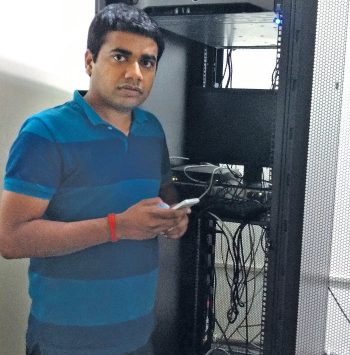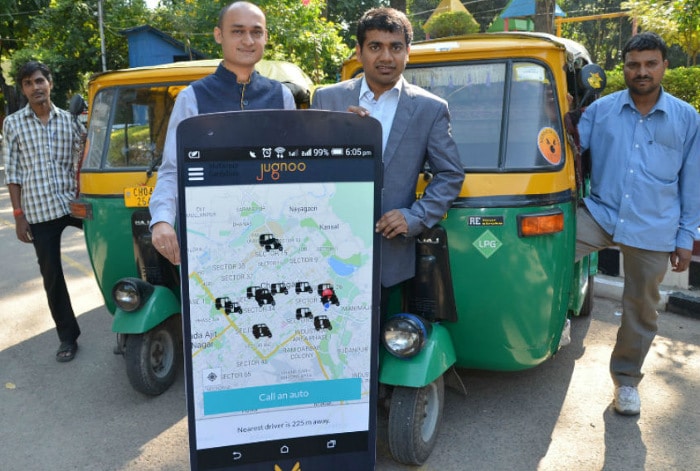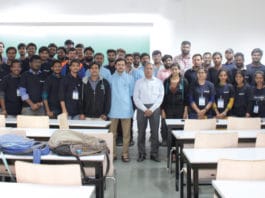
Chandigarh based Jugnoo is using open source technologies to upgrade the Indian urban transport scene through an advanced app-based model. In the process, it is helping to enhance the earnings of hundreds and thousands of auto-rickshaw drivers in the country.
As the world is moving towards digitalisation, the Indian transport system is becoming smarter. Many app-based aggregators are stepping into the market to transform the traditional commuting options across the country. Jugnoo is a Chandigarh based startup that has picked some open source technologies not just to grow bigger in the world of app-based transporters but also to reform Indian transport, as a whole.
“Open source provides us the ability to use the software fairly quickly without getting into formal business software purchase processes. In startups, where speed is the king, this is something that is very helpful when trying out something new,” said Chinmay Agarwal, co-founder and CTO of Jugnoo, in an exclusive conversation with OSFY.
Agarwal’s team has used some open source frameworks to design the core structure of Jugnoo, with an aim to help auto-rickshaw drivers. Additionally, there is the Elastic search engine support to help developers fix bugs within the Jugnoo apps.
The company recently ventured into the machine learning field and has introduced a bot that offers the auto-rickshaw booking service via Facebook Messenger. The bot comes through some API integration and enables real-time notifications using the messaging platform.
In addition to its newer features for some advanced smartphone users like the Messenger bot, Jugnoo uses the open source project Grafana for its infrastructure monitoring, and the JavaScript library D3.js to enable various dynamic data visualisations. “We like using open source products wherever we can, and it is a fairly reasonable approach,” Agarwal asserted.
Apart from using community-based solutions to enable its key services, Jugnoo is leveraging the power of open source in its organisation as well. The startup has deployed Odoo for its HR operations. It is also planning to switch completely from proprietary offerings like Tally and SAP ERP to Odoo in the near future.

Strong community support is vital
“A lot of organisations are currently using Odoo for their business processes as it is cheaper and has a strong community support. We liked its implementation for HR, and since we are small at this point, it will be relatively easy for us to transition ultimately to Odoo for other business processes too,” Agarwal said.
Deploying open source technologies is not always a breeze, though. Agarwal mentioned that certain finishing touches are sometimes missing in open source solutions. “If the software does not have well-managed community support, it is often problematic to use and hence not recommended,” he added.
However, Jugnoo addresses this challenge by using solutions that are backed by fairly strong communities. Agarwal stated, “We try to stick with software that has strong community support, and if we happen to require software that doesn’t have a strong community behind it, we commit our internal resources for its upkeep.”
Why open source for startups?
Jugnoo was co-founded by Agarwal and his IIT course-mate Samar Singla in October 2014. Both the co-founders are not new to the startup culture as they launched mobility solutions provider Click Labs before this new venture. The prior experience helped the team choose the relevant open source technologies.
“Open source software provides easy and speedy installation and use, results in fewer audit headaches as you scale up, costs less and overall, helps startups a lot when you often do not have dedicated bureaucratic IT teams,” Agarwal stated.
Cost-effectiveness is a major attraction
One of the factors behind choosing open source solutions over some proprietary options is certainly their cost-effectiveness. In the case of Jugnoo, Agarwal revealed that the entire infrastructure costs were just one-third the cost of completely proprietary infrastructure, thanks to open source deployments.
When asked about how security is ensured through open source deployments, Agarwal said that his team deploys only those solutions that are already being used by a large number of organisations across the globe. But if the company really needs to use some less-known open source projects, it tests its functionality in a sandbox environment first.
Jugnoo currently has a presence in 35 cities and around 12,000 auto-rickshaw drivers in India are using its app to earn their livelihood. The startup is not looking to grab the market of taxi aggregators like Uber and Ola. Instead, it continues its focus on auto-rickshaws in the country by using open source solutions.
“We focus on making our auto-rickshaw drivers the core revenue builders by engaging them in the services we provide, be it Dodo or Fatafat. We aim at growing to be the market leader in the auto-rickshaw space and to capture up to 20 per cent of the total market. We see ourselves in another 65 towns by the end of this financial year,” Singla said.
Jugnoo’s success with open source technologies is very encouraging for organisations thinking of moving away from proprietary solutions. Open source has been fruitful for many Indian entrepreneurs like Agarwal and Singla, who are aiming to grow bigger through some efficient deployments.




